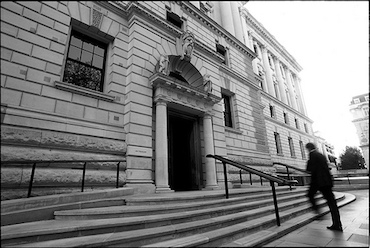Inheritance Tax receipts are rising strongly along with a number of other tax revenues, producing a mini-windfall for the government.
IHT receipts for April and May, the first two months of the new tax year, were £1.4bn, up £200m on the same period last year, latest figures show.
Analysis by platform Nucleus has also revealed that HMRC tax receipts overall for April to May were £132.8bn, £3.6bn higher than last year.
The company says receipts were higher from Income Tax, Capital Gains Tax and National Insurance Contributions (NICs), business taxes and stamp taxes. Receipts were lower from VAT and fuel duty.
Andrew Tully, technical services director at Nucleus, said: “These figures continue the strong upward trajectory in IHT receipts over the last few years. The current £325,000 nil rate band has been at that level since 2009. The residential nil rate band was introduced on a phased basis between 2017 and 2020 and potentially gives an additional £175,000 nil rate band (making a total of £500,000) subject to certain rules. Both are currently intended to be frozen until 2028.
“Given all of this, the need for expert Financial Planning remains crucial. Advisers can help manage an estate by setting up trusts, making use of gift allowances, and using a pension to pass on wealth to family in a tax efficient way.”
Wealth Club, an investment service for HNW investors, said the IHT figures continued the upward trend over the last two decades.
It forecast that after bringing in £7.499bn in 2023/24 this figure could rise if the Labour Party wins the election as a number of tax mitigation strategies to avoid IHT, such as non-doms from using offshore trusts, could be closed. Closure of offshore trusts to non-doms could bring in £430m a year, it said.
Nicholas Hyett, investment manager at Wealth Club, said: “Inheritance tax is a hot topic this election. Labour are targeting non-doms who shelter their money abroad and the Conservatives have accused Labour of harbouring secret plans to go further – with inheritance tax notably absent from the list of taxes in the Labour manifesto that will not be increased.
“The reality is that inheritance tax would likely rise under either of the two main parties. Freezes on thresholds over the last few years, partnered with decades of house price rises, have brought more and more estates into the tax band.”
Retirement specialist Just Group pointed that IHT raised £701m in May, an increase of £92 million on the same month last year (£609m). It cited an OBR prediction that IHT receipts will continue to rise and could hit £9.7bn a year by 2028/29.
Stephen Lowe, group communications director Just Group, “Last year set a record for inheritance tax receipts with £7.5 billion collected in total and this year is off to a racing start with over £1.4 billion collected over the first two months.
“The OBR’s forecast paints IHT as an increasingly lucrative source of income for the government with its latest revision expecting receipts to rise to an estimated £9.7bn by 2028/29, driven by a combination of frozen thresholds and house price growth tipping more estates over the threshold.”
Consultants Broadstone said many tax takes were rising with a record £8.1bn of Insurance Premium Tax (IPT) collections last year. The first two months of the new tax year have seen £2bn of IPT receipts, an extra £228m compared to £1.8bn the previous year.
Cara Spinks, head of insurance consulting at Broadstone, said: “Demand for private healthcare insurance products, like PMI and health cash plans, has soared following the increase in NHS waiting lists over the last three years, with many people waiting over 18 weeks for treatment.
“Cost remains a significant issue, with healthcare costs continuing to drive up premiums across the insurance market. It means that IPT is a lucrative source of tax revenue for the Treasury, with the rate of IPT more than doubling from 5% in 2011 to its current rate of 12%.”
Investment platform Hargreaves Lansdown said income tax take had also soared as frozen tax thresholds “continue to bite.” It said PAYE Income Tax and NIC1 receipts for April to May 2024 were £77.2bn, £2.8bn higher than the same period last year. It pointed out that under both Labour and the Conservatives tax thresholds would be remain frozen should either win the election.
Sarah Coles, head of personal finance, Hargreaves Lansdown, said: “The income tax take has soared as a result of frozen tax thresholds. In May we paid £19.6bn, compared to May 2021 at just £15.26 billion.
“For those who have been pushed into the higher rate tax bracket, this doesn’t just mean paying a higher rate of tax on your savings, it also means your personal savings allowance has halved overnight to £500, so you pay this higher rate on more of your savings too. It’s why cash ISAs are back on the radar for so many savers because they can protect savings from tax.”

